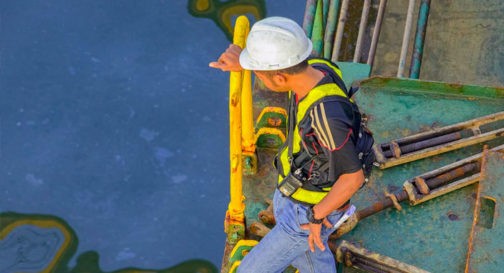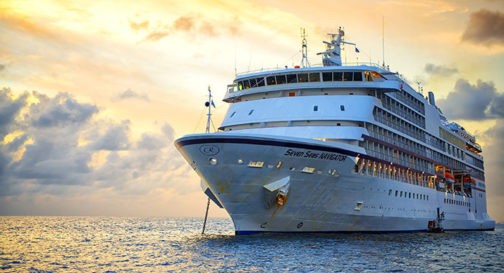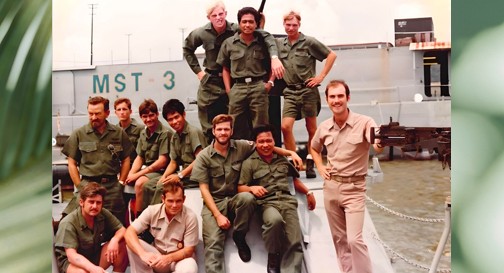What Legal Protections Do Workers Have After Offshore Accidents in California?
January 02, 2024
How Does the Law Protect Injured California Offshore Workers?
Offshore maritime work can be extremely hazardous. Whether you are employed as an oil rigger, a crew member on a vessel, a ship-breaker, or another variety of maritime employee, you face daily risks while on the job. However, just because you have a high-risk job does not mean your employer cannot be held responsible if you experience an injury. Many legal protections exist for maritime workers, although the specific laws that apply to your injury case and the remedies you can seek will depend upon the nature of your employment. If you or a loved one have suffered harm as a result of offshore work in the waters around California, it’s important to promptly contact a maritime injury lawyer to protect your claim and get the skilled representation you deserve.
What Laws May Apply to California Offshore Workers Injured in Accidents?
Maritime law is complex, and the details may be unfamiliar to many people, even those employed in offshore work. Offshore employees who have been injured in an accident may find that several laws could apply to their claim and allow them or their families to seek damages from their employer or other negligent parties, including the Public Vessels Act (PVA), the Death on the High Seas Act (DOHSA), and others. However, the majority of individuals in this situation will look to one of the following two acts to guide their next legal steps.
Jones Act
The Jones Act is a federal statute from 1920 that, among other things, extends the Federal Employers Liability Act (FELA) to seamen employed as part of the crew of a vessel. This extension of the law was necessary because a ship’s crew was not covered by state workers’ compensation programs and had few remedies if they became injured on the job. To qualify as a seaman under the Jones Act, the individual must be employed in work that contributes to the function of a ship or materially assists the vessel in completing its mission.
The Jones Act allows eligible offshore workers to hold their employer liable through a personal injury claim if injured while performing their duties. However, for the claim to be valid, the employer must share at least some fault in the accident. Negligent acts by an employer may include failing to maintain a seaworthy vessel or not providing prompt medical care for a reported injury. These cases have strict time limits and other specific requirements for filing, so it is essential to speak with a Jones Act lawyer without delay if you believe you have a claim.
Longshore and Harbor Workers Compensation Act (LHWCA)
The Longshore and Harbor Workers’ Compensation Act (LHWCA) is a federal workers’ compensation program that covers certain private-sector maritime workers. It requires that employers provide coverage for their employees engaged in longshore, harbor, or other maritime occupations on or adjacent to the navigable waters of the United States. However, the LHWCA does not apply to seamen and shipmasters who are covered by the Jones Act. The professions protected by the LHWCA include:
- Harbor construction workers
- Longshoremen
- Ship repairers
- Shipbuilders
- Dock workers
The LHWCA is vital to protecting injured maritime workers’ legal rights, but it has some limitations. In most cases, an injured employee who is eligible to file an LHWCA claim will be unable to bring a lawsuit against their employer or coworker for further damages, such as pain and suffering. However, there may be exceptions to this rule if you were injured by a third-party contractor or a defective product, so it is crucial to speak to a knowledgeable maritime law attorney to learn more about your options. Additionally, you could be barred from collecting LHWCA benefits if you were working while intoxicated, deliberately injured yourself, were working as a state government employee, or were covered by a state workers’ compensation program.
What Legal Protections Are Provided to You as an Injured Offshore Worker?
As an injured maritime employee, you have rights and protections under the law. The remedies available to you will depend on which state and federal statutes apply to your case:
- Jones Act: Besides allowing injured workers to file a lawsuit against a negligent employer for economic and non-economic damages, the Jones Act provides other protections for hurt seamen. Under the law, the employer must pay for maintenance and cure. Maintenance refers to payments for daily living costs, such as room and board, utilities, and transportation. Cure is the payment for reasonable treatment for the victim’s injuries or illness. The employer is responsible for maintenance and cure from when the worker is hurt until they reach maximum medical improvement (MMI). MMI is achieved when the individual’s condition no longer improves, even with continued treatment.
- Longshore and Harbor Workers Compensation Act: As a workers’ compensation program, the LHWCA provides benefits to injured workers regardless of who was at fault for the incident. Compensable injuries can result from on-the-job accidents, but coverage is also extended to occupational diseases and illnesses caused by the worker’s employment. Benefits workers may seek under the LHWCA include payment for lost wages and medical expenses, vocational rehabilitation to train them for a new position if they can no longer perform their jobs, and temporary or permanent disability payments, if applicable. If the worker dies as a result of their injuries, their family may also be entitled to death benefits. Terminating, discriminating against, or retaliating against an employee solely because they filed an LHWCA claim for compensation is unlawful. However, if an individual knowingly filed a false claim, an employer is within their rights to fire or decline to hire them.
How Can a Knowledgeable Lawyer Assist You?
You may have rights and protections under various maritime laws if you have been hurt while employed as a California offshore worker. Unfortunately, it can be confusing for workers to navigate the complexities of these intersecting state and federal laws and programs to receive the compensation they deserve. It is vital to consult with an experienced California maritime accident attorney who can guide you through the process to ensure that you meet all filing deadlines and protect your right to recovery. If you have experienced harm from an offshore accident, contact the Law Offices of Preston Easley today at 310-361-9484 to learn more about your legal rights.










